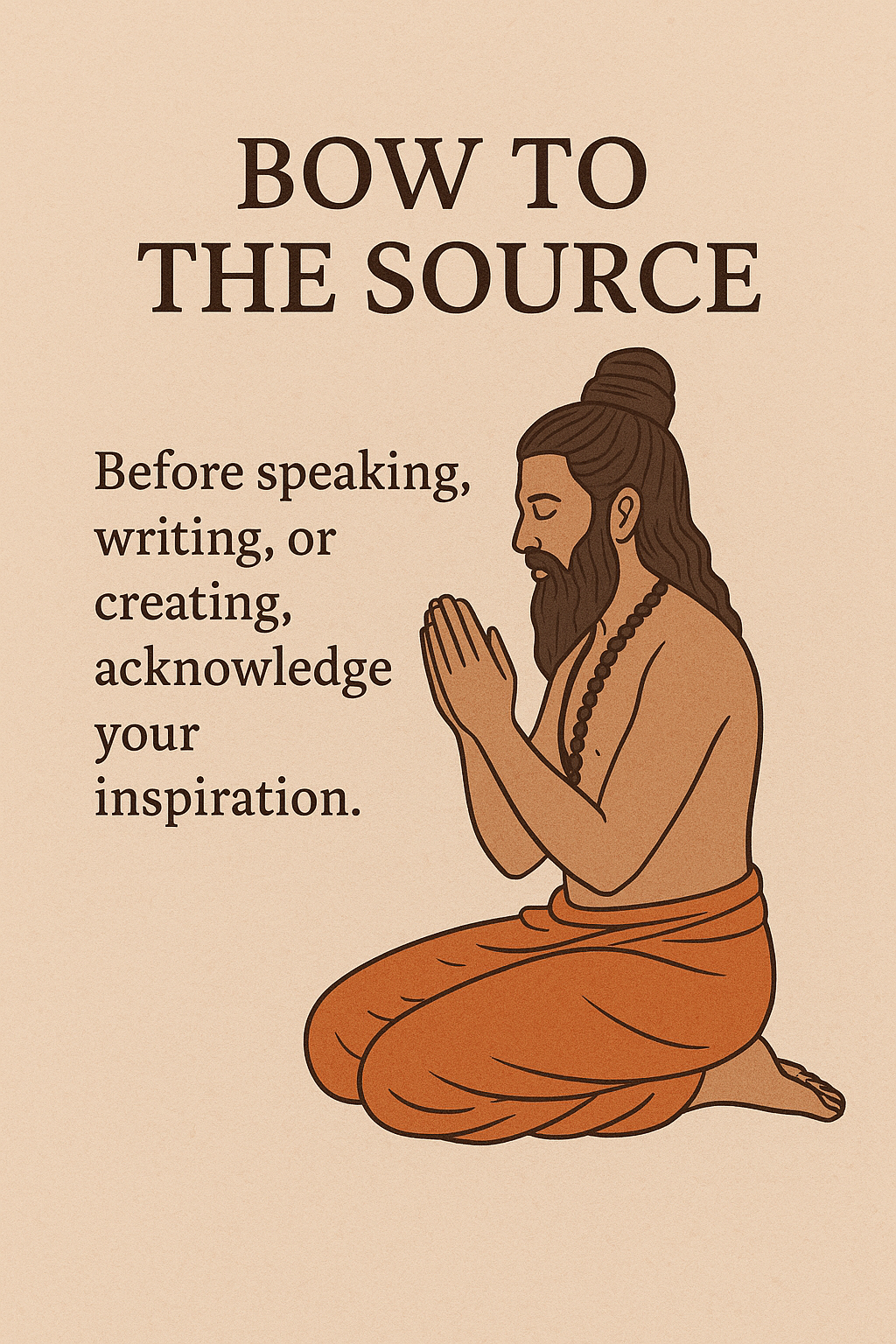
Power of Acknowledgment
Psychology Lessons in Indian Verses
22-10-2025 • 6 min read
Before You Begin, Bow to the Source
In a world that rewards speed, originality, and self-branding, one quiet virtue is fading fast — acknowledgment. We quote, remix, and reinvent endlessly, yet often forget the shoulders on which our ideas stand.
Our ancient traditions, however, teach us something profoundly different.
The Reverence Before the Recitation
In the Hindu way, every mantra begins with a sankalpa — an invocation. Before the words themselves are uttered, we remember the Rishi (sage) who first received that mantra, the Chandas (metre) that gives it rhythm, and the Deva (divine principle) it awakens.
This is not ritual for ritual’s sake — it is gratitude codified into culture. Take the Gayatri Mantra, one of the most revered verses in the Vedas: Om Bhūr Bhuvaḥ Svaḥ, Tat Savitur Vareṇyaṃ, Bhargo Devasya Dhīmahi, Dhiyo Yo Naḥ Prachodayāt.
Before chanting it, one recalls Rishi Vishwamitra, the sage to whom the mantra was revealed. This acknowledgment isn’t about authorship — the mantra is eternal, not “written” by him — but about reverence for the consciousness that received it.
It’s a reminder: wisdom is not owned, it is received — and passed forward with gratitude.
Ancient Code, Modern Relevance
Imagine if our modern creators, coders, writers, and thinkers practiced a similar ritual. Before publishing a paper, launching a startup, or uploading a video, we paused to name the mentors, teachers, and thinkers whose ideas shaped ours. What if every viral trend began with a quiet note: “Inspired by…” “Learnt from…” “Built upon the work of…”
Far from diminishing our originality, such acknowledgment deepens it. It connects us to lineage — a chain of learning that began long before us and will continue long after.
Why It Matters Now
In an age of AI-generated content and infinite sharing, authenticity will no longer be defined by who said it first, but by who said it with awareness. Gratitude becomes the new marker of wisdom. Just as the seers invoked the Rishi before uttering sacred sound, we too can invoke our sources before speaking, writing, or creating. It’s a simple act — but it transforms learning into living tradition.
So the next time you post, publish, or present, remember Vishwamitra — the sage who stood humbly before the infinite and received light.And then, before you begin, bow to your source.